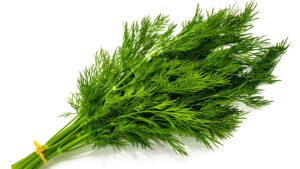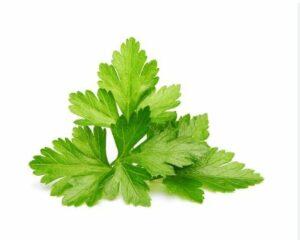
Top 15 Nutritional Benefits of Fresh Herbs and Spices for Health Conditions
Nutritional Benefits of Fresh Herbs for Health Conditions – Herbs and spices have been used for centuries in cuisines around the world to add flavor, color, and nutritional value to dishes. In recent years, there has been a growing appreciation for the health benefits of herbs and researchers have uncovered the powerful medicinal properties of many popular culinary herbs. Information Guide Nigeria
In Nigeria, the use of fresh herbs and spices is an integral part of the local cuisine. Nigerian dishes are bursting with the vibrant flavors and aromas of herbs like basil, thyme, rosemary, and native herbs like uziza, ugu, and scent leaves. Beyond adding taste to Nigerian soups, stews, and meat dishes, these flavorful herbs confer many health-promoting effects.
👉 Relocate to Canada Today!
Live, Study and Work in Canada. No Payment is Required! Hurry Now click here to Apply >> Immigrate to CanadaThis article will explore 15 of the top scientifically proven nutritional benefits of incorporating more fresh herbs into the Nigerian diet. From antioxidants and anti-inflammatory compounds to antimicrobial effects and vitamins and minerals, herbs offer a simple way to boost the nutritional content of everyday meals. Read on to learn more about how integrating more of these super-herbs can support the health and wellbeing of Nigerians.
Read Also: Top 15 Herbal Teas for Good Health in Nigeria
Top 15 Nutritional Benefits of Fresh Herbs and Spices for Health Conditions
Here are 15 nutritional benefits of fresh herbs for health conditions:
1. Basil

Sweet basil is a popular herb in many Nigerian soups and stews. The leaves of the basil plant contain a wide array of plant nutrients that make it a highly nutritious addition to local dishes.
Firstly, basil is packed with antioxidants including flavonoids like orientin and vicenin as well as phenolic acids like rosmarinic acid. These compounds can help neutralize unstable free radicals that damage cells and cause illness. Basil’s antioxidant content gives this herb the ability to fight inflammation, which is at the root of most chronic diseases like heart disease, cancer, and diabetes.
In addition, animal and lab studies demonstrate that two water-soluble flavonoids in basil called vicenin and orientin may protect cell structures as well as DNA from radiation and toxin damage. This means basil may be able to prevent cell mutations that can lead to cancer.
Basil also provides vitamin K. This essential nutrient improves bone health by increasing calcium absorption and reducing urinary excretion of calcium. The vitamin K in basil also helps with proper blood clotting. Just two tablespoons of chopped fresh basil provides 12% of the recommended daily vitamin K intake. Nutritional Benefits of Fresh Herbs and spices for Health Conditions
2. Thyme

Thyme is an herb that features prominently in many Nigerian meat, fish, and vegetable dishes. The leaves and flowers of the thyme plant are loaded with health-protective substances including flavonoids like apigenin, luteolin, and thymonin as well as phenolic antioxidants like rosmarinic acid, thymol, and carvacrol.
👉 Relocate to Canada Today!
Live, Study and Work in Canada. No Payment is Required! Hurry Now click here to Apply >> Immigrate to CanadaThymol and carvacrol are powerful antimicrobials that fight infections caused by bacteria, viruses, fungi, and parasites. Thymol was even found during studies to effectively destroy antibiotic-resistant superbugs like MRSA.
Thyme also contains lots of manganese, an essential mineral that aids in bone formation, glucose metabolism, the healing of wounds, and the absorption of nutrients. Thyme can provide 26% of the recommended daily manganese intake in just two teaspoons.
3. Curry Leaf

Also known as sweet neem leaves, curry leaves are a popular Nigerian herb that impart a deliciously aromatic citrusy flavor. The curcumin found in curry leaves contains powerful antioxidant and anti-inflammatory properties that can prevent oxidative damage to cells and protect against chronic disease.
Research indicates that curry leaves may help lower blood sugar levels and improve insulin activity due to the presence of substituted glucose molecules. For diabetics or even those looking to maintain balanced blood sugar, adding these flavorful leaves to Nigerian dishes is an easy way to stabilize glucose levels.
Curry leaves are also rich sources of iron. Consuming these leaves regularly can benefit those with iron-deficiency anemia, which is common in developing countries like Nigeria. Just 8 grams of curry leaves provide over 17% of the recommended daily iron intake.
Read Also: Top 15 Health Benefits of Kale
4. Rosemary

Rosemary is an extremely nutritious herb used to impart flavor to soups, meats, and roasted vegetables. It contains a wide range of nutrients including vitamin A, vitamin C, vitamin B6, folate, calcium, iron, magnesium, potassium, copper, and manganese.
Rosemary’s nutritional profile gives it a myriad of health benefits. Due to its stellar antioxidant content, studies consistently find that rosemary prevents oxidative stress and improves antioxidant status. Oxidative stress, caused by unstable free radicals in the body, leads to cellular damage and contributes to diseases like cancer heart disease and liver disease.
Research also demonstrates rosemary’s efficacy in stimulating the immune system thanks to its anti-inflammatory and antioxidant activity. Active compounds like rosmarinic acid heighten the body’s pathogen-fighting abilities.
Plus, rosemary appears to positively impact cognitive health and brain function. Carnosic acid in rosemary helps shield the brain from oxidative damage and lowers the risk of neurodegenerative diseases like Alzheimer’s. Top 15 States with the Most Beautiful Ladies in Nigeria
5. Mint

In Nigeria, mint is commonly combined with basil in soups and stews. This aromatic herb contains over 40 different antioxidant molecules providing strong medicinal effects. The polyphenol antioxidants in mint including rosmarinic acid, caffeic acid, and menthol fight free radical damage and decrease inflammation.
The potent anti-inflammatory activity of menthol in mint helps alleviate pain from headaches, muscle aches, and joint pain. Applying mint essential oil or mint poultices can relax muscles spasms and reduce soreness.
Mint may also minimize digestive issues like nausea, cramping, bloating, and irritable bowel syndrome due to its ability to relax GI muscles and ease inflammation. Sipping mint tea is an excellent way to reap the digestive and anti-inflammatory benefits of this popular herb.
6. Dill

Dill adds great flavor to Nigerian soups, meat recipes, and sautéed vegetables. In addition to its taste, dill provides outstanding nutritional benefits. It is high in vitamins A and C which act as antioxidants, boost immunity and prevent cellular mutations that lead to chronic diseases like cancer.
Dill seeds and leaves also contain kaempferol, vicenin, and anethofuran. These flavonoid compounds exhibit strong anti-inflammatory effects by inhibiting pro-inflammatory enzymes. For this reason, regularly consuming dill-heavy dishes can help prevent inflammatory disorders.
Plus, dill has potent antimicrobial effects against strains of bacteria that commonly cause foodborne illnesses. The essential oils in dill seeds, including limonene and carvone, have powerful antibacterial properties. Adding dill to foods may help prevent the growth of harmful bacteria. 15 Most Populated Countries in Africa 2023
7. Fenugreek

Fenugreek, also called methi, is used for tempering dishes and added to curries in Nigerian cuisine. It has an impressive nutritional profile containing fiber, minerals like iron, magnesium, and copper as well as vitamins B6, A, and C.
Fenugreek seeds are rich in galactomannan, a type of beneficial soluble fiber. Eating foods high in fiber slow digestion and minimize blood sugar spikes. This can help stabilize blood glucose levels in diabetic patients. The fiber in fenugreek can also lower “bad” LDL cholesterol levels.
In addition, fenugreek contains compounds like trigonelline, diosgenin, and saponins that reduce inflammation and may ease symptoms of arthritis, gout, and lymph node swelling. Applying fenugreek poultices topically can also relieve muscle soreness, sciatica pain, and foot calluses.
Read Also: Top 15 Proven Health Benefits of Garlic
8. Parsley

Parsley brightens up many Nigerian meals with its fresh green color and mild herbal taste. The nutrients packed inside the leaves of this herb have remarkable health benefits.
Firstly, parsley contains a type of antioxidant called luteolin which shows strong anti-cancer activity in lab studies. Luteolin blocks tumor growth, triggers cancer cell death, prevents angiogenesis, and stops cancer cells from migrating.
The vitamin C, vitamin A, and flavonoids in parsley also provide anti-inflammatory effects that may prevent osteoarthritis. Parsley works as a diuretic and helps flush out excess fluid from joints that causes swelling and pain.
Furthermore, folic acid, vitamins B12, B6, and vitamin C support heart health by keeping levels of homocysteine in balance. Homocysteine is an amino acid linked to heart disease and stroke when elevated in the blood. NYSC Portal
9. Sage

Sage is well-known for its medicinal effects and this herb features in Nigerian pepper soup, meat dishes, and tea. It contains health-boosting compounds like vitamin K, antioxidants like rosmarinic acid, and volatile oils such as thujone, camphor, and salvene.
Sage has strong antimicrobial and antifungal effects and is traditionally used as a remedy for infectious diseases like coughs and colds. The thujone in sage is toxic to bacterial cells and eradicates common microbes that cause throat infections and dental cavities.
The antioxidants and anti-inflammatory compounds in sage may also help enhance memory and cognitive function. Research finds sage can improve attention, word recall, and information processing speed. Brain cell death and diseases like Alzheimer’s are linked to chronic inflammation, so sage’s anti-inflammatory activity protects mental health.
10. Oregano

A member of the mint family, oregano is added to many Nigerian soups, meat dishes, and bean recipes. Oregano offers antibacterial, antifungal, antioxidant, anti-inflammatory and antiviral benefits.
Oregano’s antibacterial power comes from thymol and carvacrol, two organic compounds that damage bacterial cell membranes. These potent substances fight foodborne pathogens like Listeria, Salmonella, and E. coli.
The antioxidants in oregano including rosmarinic acid and hydroxycinnamic acids prevent free radical damage and lower inflammation. Oregano’s anti-inflammatory properties can help treat inflammatory issues like arthritis, gout pain, and muscle soreness when applied topically. JAMB portal
11. Cilantro

Also called coriander, cilantro is a popular Nigerian herb often paired with basil. Cilantro contains multiple nutrients and antioxidants including vitamins C, A, and K as well as carotenoids, flavonoids, and phenolic compounds.
Coriander seeds, leaves, and roots exhibit broad antimicrobial activity against both internal and external infections. The antioxidants in cilantro scavenge bacteria-damaging free radicals, protecting against food poisoning and urinary tract infections.
Cilantro also minimizes inflammation, helping lower the risk of diseases like heart disease and arthritis. The anti-inflammatory effect improves swelling, pain, and stiffness related to inflammatory conditions.
Plus, cilantro binds to heavy metals and helps remove toxins like lead, aluminum, and mercury from the body. Toxin accumulation can damage organs and cause hormonal imbalance, headaches, fatigue and cognitive issues.
Read Also: Top 15 Proven Health Benefits of Turmeric and Curcumin
12. Ukazi/Uziza

The uziza plant is a traditional Nigerian herb with pale green leaves and fruits that resemble peppercorns. Uziza has an intensely peppery flavor with hints of citrus.
Uziza leaves are excellent sources of vitamins A and C as well as calcium, zinc, potassium, iron, and phosphorus. These nutrients improve immunity, bone density, heart health, digestion, and cellular repair processes.
In addition, the berries, seeds, and leaves of uziza contain powerful antibacterial compounds that combat foodborne pathogens including E. coli, Staphylococcus aureus. This helps prevent diarrheal diseases from contaminated water and food.
Traditional Nigerian medicine utilizes uziza to treat coughs, intestinal issues, rheumatism, asthma, and fever. Many of these medicinal effects can be attributed to the anti-inflammatory effects of flavonoids in the leaves. JAMB Result
13. Scent Leaves

With their distinctive lemony aroma, scent leaves lend a pleasant fragrance and flavor to Nigerian stews and soups. Scent leaves offer antimicrobial, anti-inflammatory, and anesthetic benefits.
Eugenol, a compound in scent leaves, inhibits the growth of microorganisms that cause dental cavities, throat infections, diarrhea, skin infections, food poisoning, and HP pylori infections that can lead to stomach ulcers.
Essential oils derived from scent leaves demonstrate anti-inflammatory, analgesic, and local anesthetic properties when applied topically. This can help relieve pain, swelling, and discomfort from inflammatory conditions like arthritis and hemorrhoids.
Scent leaves also contain vitamins A and C, calcium, magnesium, iron, and phosphorus to support immune function, wound healing, and cellular repair processes. 200 romantic love message for her
14. Bitter Leaf

Bitter leaf, as the name suggests, has a bitter taste but offers sweet health benefits. Also called onugbu, its used to flavor Nigerian dishes like pepper soup. Bitter leaf contains vitamins A, C, E, and B as well as minerals like calcium, potassium, and phosphorus.
Bitter leaf demonstrates strong antibacterial effects against common foodborne pathogens and may prevent diarrhea and stomach upsets. The flavonoids in bitter leaf also make it an anti-diabetic plant medicine that helps lower blood sugar spikes.
In addition, bitter leaf extracts exhibit anti-malarial activity against plasmodium which causes malaria. The high antioxidant content supports immune function while the anti-inflammatory effects benefit those with arthritis and rheumatism. 105 good morning messages
15. Holy Basil

Holy basil, known as tulsi in Nigeria, is a herb revered for its therapeutic properties. It imparts a peppery, minty flavor to foods. Nutrients in holy basil leaves include vitamin A, K, and C as well as minerals like calcium, iron, and potassium.
Eugenol, vitamin A and vitamin C act as antioxidants that destroy harmful free radicals and protect against various cancers. Holy basil extracts inhibited liver, oral, skin, and cervical cancer in preliminary lab and animal research.
Holy basil also contains anti-inflammatory compounds. Applying holy basil topically can minimize pain, swelling, and stiffness from inflammatory disorders. Plus, it may boost immunity and help fight infectious diseases like coughs, colds, and flu.
The antimicrobial effects of holy basil prevent the growth of pathogens that cause food poisoning, diarrhea, urinary tract infections. As an adaptogen herb, it may also help manage symptoms of anxiety and depression.
Read Also: 15 Amazing Health Benefits of Utazi (Gongronema Latifolium) Leaves
Conclusion
Incorporating more local herbs and medicinal plants into everyday Nigerian cooking is a simple way to boost flavor and nutrition in your diet. As this article outlined, herbs like mint, basil, thyme, curry leaves, and uziza provide essential vitamins, minerals, antioxidants, and anti-inflammatory compounds that support overall health and wellness.
Adding these fresh super-herbs can help reduce your risk of chronic illnesses like heart disease, cancer, diabetes, and arthritis. Their antimicrobial effects ward off foodborne pathogens and other infectious agents. Herbs even benefit brain health, digestion, blood sugar control, cholesterol levels, toxin removal, and pain relief.
Next time you cook Nigerian favorites like jollof rice, soups, stews, roast meats, and pepper soup, be generous with fresh herbs. Your body will reap the amazing nutritional advantages.
Check JAMB Result
Check and Confirm: How much is Dollar to Naira







